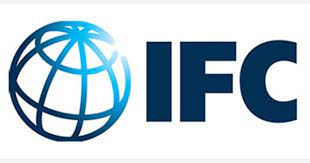Abu Dhabi November 13 2023: OPEC+ crude oil output grew 180,000 b/d in October, the latest Platts survey by S&P Global Commodity Insights found, adding supply pressures to flagging market sentiment, as Iran and Iraq led the group’s production higher.
OPEC’s 13 members pumped 27.89 million b/d, up 130,000 month on month, while 10 non-OPEC allies, including Mexico, which is not subject to a quota, boosted production by 50,000 b/d to 14.82 million b/d.
The increases narrowed the OPEC+ alliance’s quota shortfall to 827,000 b/d in October, including voluntary cuts implemented by the group, the survey found, with many African members still struggling to hit their targets, despite growing non-compliance by Iraq.

The producer group has aggressively slashed its quotas since July in an effort to prop up prices, but even with the escalating Israel-Hamas war, the market has slumped in recent weeks on tepid economic indicators, especially from China, and robust non-OPEC supply growth.
Platts Dated Brent was assessed at $82.70/b on Nov. 9, more than $15/b below the 2023 peak in late September, and the market outlook will be in heightened focus as the alliance prepares to meet in Vienna Nov. 26 to discuss production policy for 2024.
The two largest OPEC+ producers, Saudi Arabia and Russia, saw their output mostly hold steady, the survey found.
Saudi output, subject to voluntary cuts of 1.5 million b/d since July, averaged 9.00 million b/d in October, as the kingdom continues to hold production at two-year lows.
Russia, which said it was implementing a 300,000 b/d export cut for October that includes refined products, saw a slight uptick in production to 9.47 million b/d, according to the survey.

Their production discipline has been somewhat undermined by Iraq, which saw a 90,000 b/d month-on-month rise to 4.40 million b/d, with companies in the semiautonomous Kurdistan region reporting higher output, despite the ongoing halt to pipeline exports via the Turkish port of Ceyhan.
Federal authorities in Baghdad have claimed little oversight of Kurdish production and complained previously about those volumes making it difficult for Iraq to comply with its OPEC+ quota, which is 4.22 million b/d for October. Iraq, with its production at a nine-month high, is the group’s biggest quota violator in the month.
Iran, which gained an exemption from quotas due to US sanctions, increased production to 3.05 million b/d, as pipeline issues that affected production and exports in September were resolved, according to survey participants.
Production is now at a five-year high, increasing significantly since sanctions pressure eased after Russia’s invasion of Ukraine. But a further escalation of the Israel-Hamas war could bring renewed sanctions enforcement, if Iran is found to be complicit, analysts have said.
Angolan production grew by 30,000 b/d on the month to 1.15 million b/d, as exports rose, and the Luanda refinery resumed normal operations in early October.
Angola, alongside other African producers, is under the gun to demonstrate higher output ahead of a reevaluation of quotas at the upcoming OPEC+ meeting.
The group’s voluntary cuts by Saudi Arabia and Russia, recently extended through the end of 2023, are also due to be reviewed, with officials saying they could be scaled up or down depending on market conditions.
Other cuts by various members are due to remain in place through the end of 2024.
OPEC+ continues to produce significantly below quota, with a compliance rate of 112% in October, down from 114% in September, according to the survey.
Non-OPEC countries taking part in the cuts produced 410,000 b/d under their combined quotas in October.
Meanwhile, OPEC countries that have quotas produced 417,000 b/d below their combined quotas.
OPEC members Iran, Libya and Venezuela and non-OPEC Mexico do not have quotas under the group’s supply accord.
The Platts survey measures wellhead production and is compiled using information from oil industry officials, traders and analysts, as well as by reviewing proprietary shipping, satellite and inventory data.










